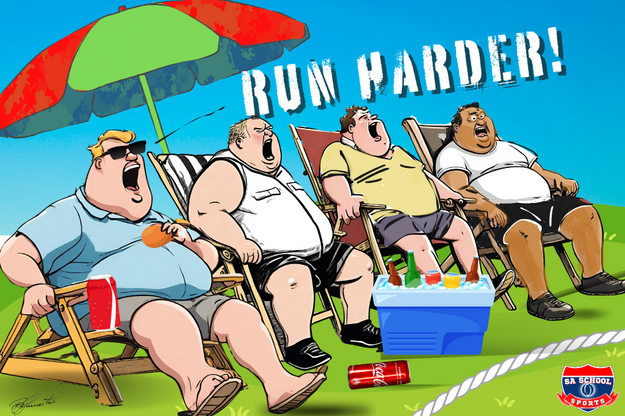 If there is one fact we all know about sport, and in particular school sports, its that sports should be, above all, a source of joy for the players. In this dynamic arena, young athletes arrive at school in diverse shapes, sizes, and skill levels, each contributing to the rich tapestry of the sporting experience.
If there is one fact we all know about sport, and in particular school sports, its that sports should be, above all, a source of joy for the players. In this dynamic arena, young athletes arrive at school in diverse shapes, sizes, and skill levels, each contributing to the rich tapestry of the sporting experience.
While not every participant can claim the spotlight as the team’s star or a major contributor, the paramount goal remains consistent – fostering a genuine love for the game and ensuring a fulfilling and enjoyable experience, irrespective of victory or defeat. It doesn’t matter if you are not the best!
Let’s dive in 👇
However, amid the exhilaration, there are moments when parents inadvertently lose sight of the essential principle that underlines the spirit of youth sports. There are some who think that every team member should effortlessly excel, be able to run 100 metres to score tries, executing flawless tackles, or achieving perfect goals.
The reality is that not every school athlete has the same ability and that’s OK. The goal is not just victory but the cultivation of enjoyment and the continual journey of improvement.
At times it is staggering to observe the self-assurance some parents have as they sit in the cool shade on their deck chair, sipping a cold one and then bellowing out to the players in the middle to run harder and faster in the 35 degree heat of our African summer. Encouragement is best served with a slice of understanding what the players are going through.
While well-intentioned, there is a need for this support to be grounded in empathy, understanding the physical and emotional challenges faced by young athletes on the field.
However, what is perhaps even more annoying is when you hear a parent criticize, make fun of, or just bad-mouth another child on a team. Many teams have that all-knowing father or mother who just can’t stop criticizing other players on the team. (You know the one), who is quick to brush under the carpet their own child’s unplanned dance moves but is faster than a rattle snake at pointing out some other players mistake.
Parents, in their role as spectators and supporters, should refrain from verbalizing negativity and instead opt for expressions of encouragement, commendation for effort, and constructive guidance when needed.
 Remonstrating on the side-lines hardly engenders respect from the players or confidence in what they are trying to do the best way possible. And the person entrusted to sorting out the error is the coach, its their domain and we can be sure if we have noticed the mistake the coach has as well.
Remonstrating on the side-lines hardly engenders respect from the players or confidence in what they are trying to do the best way possible. And the person entrusted to sorting out the error is the coach, its their domain and we can be sure if we have noticed the mistake the coach has as well.
While it can be frustrating to witness a player let down the team by making a mistake, it is essential to exercise restraint and recognize that, at times, a parent may not fully comprehend another child’s circumstances. Whether a child is having a bad day or dealing with distractions off the field, the golden rule applies – “If you don’t have anything nice to say, keep it to yourself.” The emotional well-being of young athletes should take precedence over momentary lapses in performance.
Observing these dynamics unfold on the school field, it becomes apparent that a concerted effort is needed to rectify the narrative. Conversations between parents should be framed in a positive light, with an emphasis on the commendable efforts of all children involved. If a parent finds themselves engaged in a conversation where derogatory remarks about another child arise, they have two choices:
- either highlight the child’s effort, and that they deserve a big pat on the back for being on the field, or,
- if the situation warrants, gracefully walk away from the conversation.
Exceptions may arise when a child exhibits insubordination to a coach or engages in egregious behavior, warranting intervention.
Besmirching a child who may not necessarily have the same talents as another is unjust. Recognizing that not everyone is perfect, and that a missed pass or a fumbled catch does not define a child’s worth, is a lesson that extends beyond the sports field.
Life is challenging enough for kids, and sports serve as a respite, a realm where they can momentarily escape life’s complexities and have some fun. The sports field, can be a safe haven for a child whether one is the best on the team or just one of the kids.
Notice we didn’t say “worst on the team.” No child deserves that moniker or any negative connotation for that matter. Each child is an integral part of the team, contributing in their unique way to the collective spirit of sportsmanship and camaraderie.






